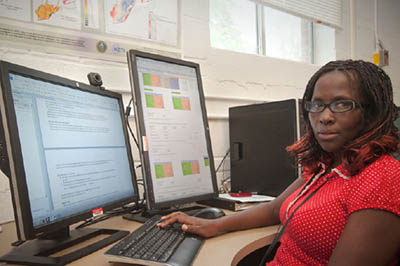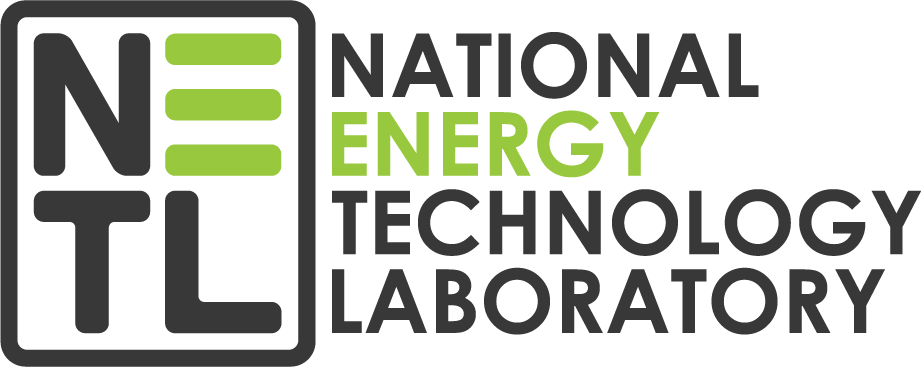Participant uses math skills to determine impacts of hydraulic fracturing
Meet Juliana Mbuthia
When Juliana Mbuthia immigrated to the U.S. in 2006, she could hardly operate her email. Computers were a rare commodity in her home country of Kenya, and she lacked the practical, technological knowledge she now relies on to succeed. Today she’s writing code and analyzing data using complex statistical formulas at one of the nation’s leading research labs: the National Energy Technology Laboratory (NETL) in Albany, Oregon.

As a participant in the NETL Postgraduate Research Program, Juliana Mbuthia is using her computer, math and statistical skills to help determine the impacts of hydraulic fracturing.
“Before this appointment, I was a math instructor with a masters’ degree in math. One day I realized that pursuing math alone might limit me to the classroom. I loved teaching, but variety is the spice of life, so I knew I needed a more challenging path,” said Mbuthia. That path led her down the road of auditing and taking statistics classes, and she is currently pursuing a master’s degree in Electrical and Computer Engineering at Oregon State University.
She is also a participant in the NETL Postgraduate Research Program administered by ORAU through the Oak Ridge Institute for Science and Education. The program grants students the opportunity to network with world-class scientists using state-of-the-art equipment and gives them a chance to develop their skills in a practical, hands-on environment.
At NETL, Mbuthia is using her computer, math and statistical skills to help determine the impacts of hydraulic fracturing, also known as fracking. Fracking is used to extract natural gas across the U.S. Her most recent project involved modeling greenhouse gas emissions, like methane, from unconventional natural gas wells. An unconventional well refers to natural gas that is situated in rocks with extremely low permeability. This makes recovering the gas more difficult than in a conventional well like limestone or sandstone.
“The main purpose of the research is to statistically analyze the data of greenhouse gas emissions and in particular, methane emissions,” said Mbuthia. “The research will help in making informed decisions and understanding the underlying concept of the greenhouse gas lifecycle.”
The overarching goal is to provide the public, industry and government leaders with data to better understand the risks of hydrofracking.
“There is already a controversy surrounding hydraulic fracturing and emissions from unconventional wells and their contribution to global warming,” she said. “The research was geared towards analyzing available data to more clearly explain the facts to the public and concerned authority in a correct manner with little or no confusion.”
Mbuthia has not only cultivated her brainstorming skills by collaborating with other NETL scientists, but she has also had plenty of time to do individual, independent research. Her overall experience in the program has inspired her to continue pursuing a career in the government laboratory setting.
“I definitely see this research and NETL as an integral part of my future. I will master my profession within NETL by enhancing my research skills and at the same time learning new ones,” she said. “I hope to continue to grow, improve and develop research. I want to have made a great impact at NETL in a great significant, positive and remarkable way.”


